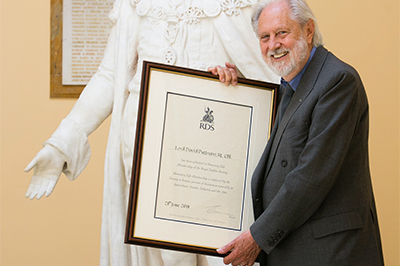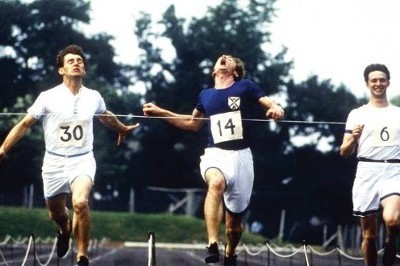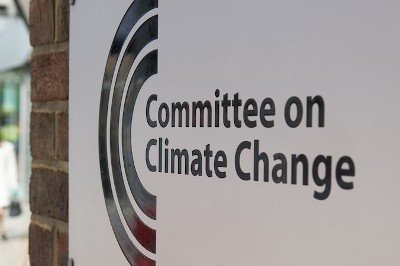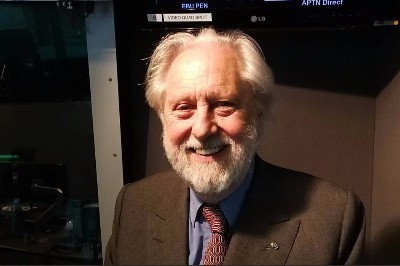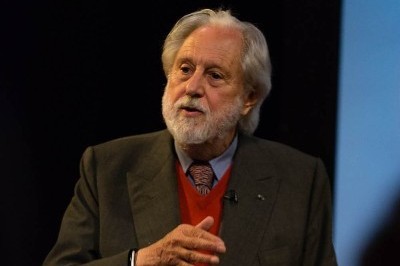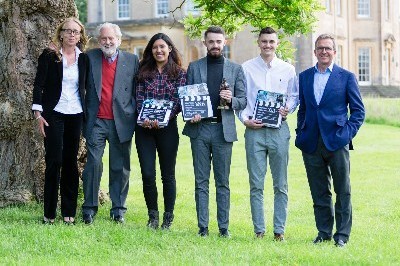Chariots of Fire: The flame of conviction
Source: RAMNATH N PAI RAIKAR | NT NETWORK for The Navhind Times on June 23 2018
The British Olympic champion, Eric Liddell whose athletic brilliance earned him the nickname, ‘The Flying Scotsman’ was immortalised in the film, ‘Chariots of Fire’ (1981). Though based on true events, the film is a fictionalised account of the trials undergone by the British track team competing in the 1924 Olympics, particularly Liddell, a devout Christian and Harold Abrahams, who was struggling in the face of casual anti-Semitism to make a name for himself and his people, in the races.

Producer, David Puttnam was looking for a story in the mould of ‘A Man for All Seasons’ (1966) regarding someone who follows his conscience, and felt sports provided clear situations in this context. He discovered Liddell’s story by accident in 1977, when he happened to read a reference book on the Olympics while housebound from the flu, and decided to film the story, which every production company considered too dated.
Screenwriter Colin Welland, commissioned by Puttnam, did an enormous amount of research for his Academy Award-winning script. Among other things, he took out advertisements from London newspapers seeking memories of the 1924 Olympics, went to the National Film Archives for pictures and footage of the particular sports event, and interviewed everyone involved, who was still alive. Welland just missed Abrahams, who died on January 14, 1978, but he did attend Abrahams’ February 1978 memorial service, which inspired the framing device of the film.
Hugh Hudson, an advertising and documentary filmmaker, who had never helmed a feature film, was signed to direct by Puttnam. Hudson was determined to cast young, unknown actors in all the major roles of the film to maintain a strong sense of realism, and back them up by using veterans like John Gielgud, Lindsay Anderson and Ian Holm. Hudson and Puttnam did months of fruitless searching for the perfect actor to play Liddell. They then saw Scottish stage actor, Ian Charleson performing the role of Pierre in the Royal Shakespeare Company’s production of ‘Piaf’, and knew immediately they had found their man. Coincidentally, Charleson had heard about the film from his father and desperately wanted to play the part. He, in fact studied the Bible intensively in preparation for the role, and further himself wrote Liddell’s speech to the post-race workingmen’s crowd at the Scotland V/s Ireland races. Ben Cross, who plays Abrahams, was discovered while playing Billy Flynn in the stage musical, ‘Chicago’.
20th Century Fox, which put up half of the production budget in exchange for distribution rights outside of North America, insisted on having a couple of notable American names in the cast. Thus the small parts of the two American champion runners, Jackson Scholz and Charlie Paddock, were cast with the then recent headliners namely Brad Davis, who had starred in ‘Midnight Express’ (1978) and Dennis Christopher starred as a young bicycle racer, in the popular indie film, ‘Breaking Away’ (1979).
All of the actors portraying runners underwent a gruelling three-month training intensive with renowned Olympic running coach, Tom McNab. This training and isolation of the actors created a strong bond and sense of camaraderie among them. The beach scenes associated with the theme tune were filmed at West Sands in St Andrews, Scotland. A plaque commemorating the filming can be found there today. All of the Cambridge scenes were actually filmed at Hudson’s alma mater Eton College, because Cambridge refused filming permission, fearing depictions of anti-Semitism. The Cambridge administration greatly regretted this decision after the film’s enormous success. Liverpool Town Hall was the setting for the scenes depicting the British Embassy in Paris. The Colombes Olympic Stadium in Paris was represented by the Oval Sports Centre, Bebington, Merseyside. The railway station scenes were filmed in York, using locomotives from the National Railway Museum.
Although the film is a period piece, set in the 1920s, the Academy Award-winning original soundtrack composed by Vangelis – a Greek-born electronic composer – uses a modern 1980s electronic sound, with a strong use of synthesizer and piano among other instruments. This was a bold and significant departure from earlier period films, which employed sweeping orchestral instrumentals. The title theme of the film has become iconic, and has been used in subsequent films and television shows.
The film was slightly altered for the US audience. A brief scene depicting a pre-Olympics cricket game between Abrahams, Liddell, Montague, and the rest of the British track team appears shortly after the beginning of the original film. For the American audience, this brief scene was deleted.
Since its release, ‘Chariots of Fire’ has received generally positive reviews from critics. The film produced at a budget of $5.5 million collected $59 million, with overwhelming response from the audiences. It was nominated for seven Academy Awards and won four, including Best Picture and Best Original Screenplay.
A stage adaptation of ‘Chariots of Fire’ was mounted in honour of the 2012 Olympics held in London. The play also titled, ‘Chariots of Fire’, which was adapted by playwright Mike Bartlett and included the iconic Vangelis score, ran from May 9 to June 16, 2012, at London’s Hampstead Theatre, and transferred to the Gielgud Theatre in the West End on 23 June, where it ran until 5 January, 2013.
An unofficial sequel to ‘Chariots of Fire’ titled, ‘On Wings of Eagles’ (the Chinese version was titled, ‘The Last Race’) was released in 2017. It tells the story of Liddell when he was interned by the Japanese during the Second World War.






